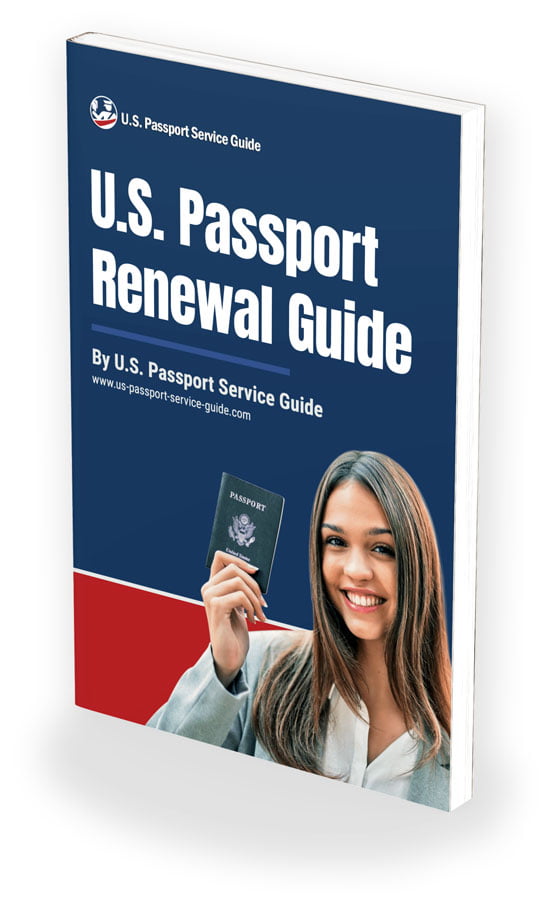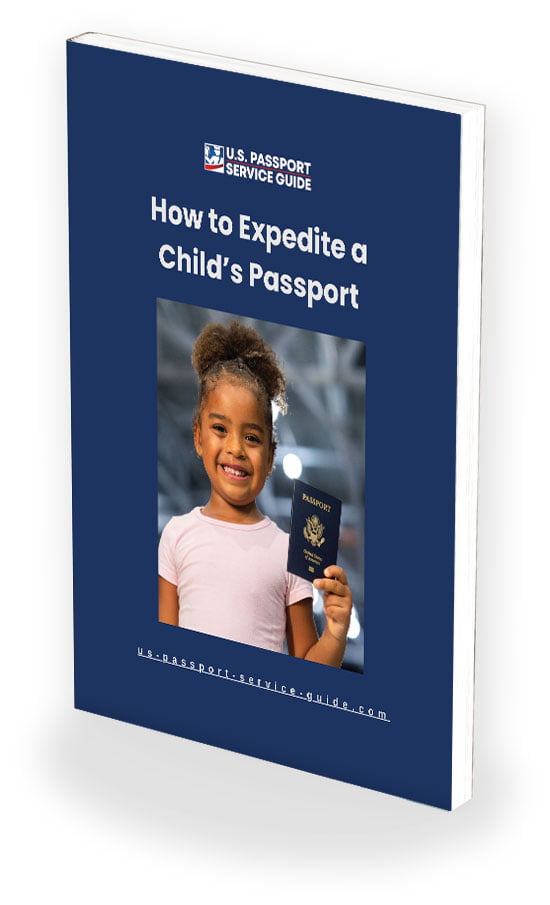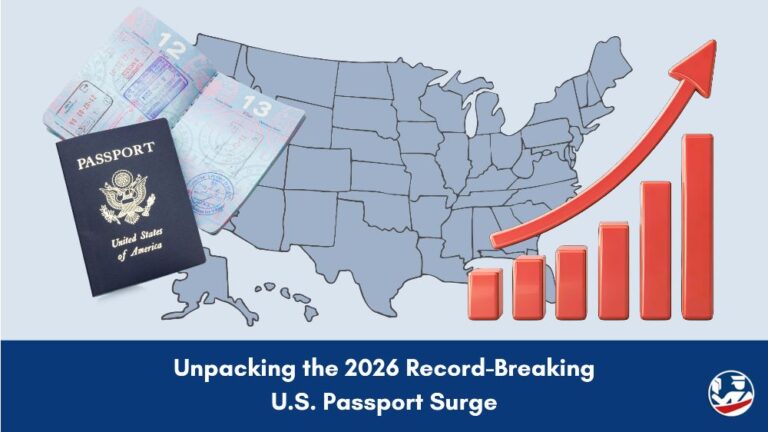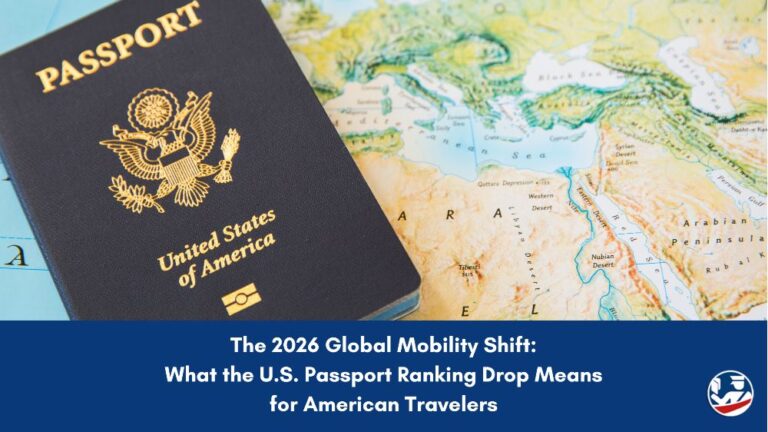So, you’re thinking about—or already have—moved abroad! Whether it’s for work, family, geopolitical concerns, or just the adventure of living in a new culture, making the move is exciting, but it does require a lot of thoughtful planning and preparation. One item at the top of the list is a passport.
I moved overseas more than 30 years ago. As a longtime expat, I have dealt with a variety of passport issues for myself, my family, and many friends who have come to visit us. Here’s a practical guide on the passport and documentation essentials you need as a U.S. expatriate.
Getting Started: The Passport Basics
The first step is to make sure your passport is valid for at least six months past your planned travel date. Many countries require at least six months’ validity for entry, even if you’re only visiting short-term before settling down. This might sound like an odd rule, but it’s common—countries want to be sure travelers have enough time to renew if needed. If your passport expires too soon, you may be denied entry at the airport, so check those dates well in advance!
Also, consider how long you’ll be abroad. If you’re staying indefinitely, it might make sense to renew your passport before you leave, especially if you are relocating to a place that is distant from a U.S. embassy or consulate general. U.S. passports for adults are valid for 10 years, and having that full validity period can save you a lot of hassle when living abroad.
If you are moving with children under the age of 16, know that they must get a different passport that is only valid for 5 years. Note that these passports for minors cannot be renewed by mail.
In a rush? Get started on your application today with our top-rated registered passport expediting service and get a passport in as few as 48 hours.
✈️ Need Your Passport Fast?
Traveling soon? Get your passport in as little as 24 hours with our trusted expedited service. Or choose Priority Service for delivery in just 7–9 business days — now with 15% off.
Passport Renewal for Expats
When living abroad, you’ll need to renew your passport at a U.S. embassy or consulate. Luckily, this process is pretty similar to renewing at home. Processing times at foreign embassies vary, ranging from 2 to 5 weeks. Most embassies and consulates have emergency services for those who need to expedite the process.
U.S. citizens residing abroad can renew their passports through different methods, depending on the policies of the U.S. embassy or consulate in their country of residence. In many countries, in-person applications at a U.S. embassy or consulate are required for all passport services. However, some embassies and consulates offer mail-in renewal options under specific conditions.
For instance, in the Philippines, eligible applicants can renew their passports by mail by following the steps outlined on the website of the U.S. Embassy in the Philippines. Similarly, the U.S. Embassy in Germany provides detailed instructions for renewing passports by mail
Conversely, in countries like Eritrea, all passport applicants are required to apply in person at the U.S. embassy or consulate.
To determine the specific requirements for passport renewal in your country of residence, it’s essential to consult the official website of the U.S. embassy or consulate serving that country. They provide the most accurate and up-to-date information on application procedures, eligibility criteria, and whether mail-in renewals are accepted.
Passport application processing times vary at these locations, usually ranging from 2 to 5 weeks.
To renew your passport abroad, here’s what you need to mail in or bring to your appointment:
- Form DS-82: This is the renewal form for U.S. citizens. You can download it online, but you’ll need to print and fill it out to bring with you.
- Current Passport: If your old passport is damaged or lost, you’ll have to report it to the embassy as well.
- Passport Photos: Most U.S. embassies require passport photos in a specific size and style, so it’s best to get them taken locally to ensure they meet the embassy’s guidelines.
Related Post: Why a Passport Photo Gets Rejected: Mistakes to Avoid
How to Rush Your Passport Renewal—Whether You’re in the U.S. or Abroad
Sometimes, the decision to leave the country comes quickly—whether it’s a family emergency, a geopolitical situation, or a sudden work obligation. If you need to get or renew your passport fast, there are different ways to expedite the process, depending on whether you’re still in the U.S. or already living abroad.
Rushing Your Passport Renewal in the U.S.
If you’re still stateside, a registered passport expediting service can significantly speed up your renewal or new passport application. These services work directly with regional passport agencies and can often process your application in as little as 24 hours, depending on your circumstances. Here’s how it works:
- Choose a Trusted Service: Look for expediters that are registered with the U.S. Department of State to ensure they’re legitimate and reliable. The U.S. Passport Service Guide provides a list of trusted, government-authorized expediters.
- Select Your Processing Speed: Expediting services offer different speed options, with fees based on urgency. Most services offer options ranging from 1–2 business days to 7–10 business days.
- Submit Required Documents: You’ll typically need to send in Form DS-82 (for passport renewals), a current passport photo, and any additional supporting documents the service specifies. Requirements for a new or first-time passport are slightly more involved.
Using an expediting service is ideal if your travel date is within the next few weeks, as regular passport agencies may not be able to meet your timeframe, especially during periods of high demand.
Renewing Your Passport Quickly While Abroad
For expats already living overseas, the process is a bit different. Expedited services are not available abroad, but U.S. embassies and consulates can provide faster processing in emergencies. Here’s what to do if you need to renew your passport quickly while outside the U.S.:
- Contact the Nearest U.S. Embassy or Consulate: Explain your urgent travel situation and ask about emergency passport renewal options. Many embassies can issue temporary passports if you have immediate travel plans.
- Bring Supporting Documentation: You’ll likely need to present Form DS-82, your existing passport, new passport photos, and proof of your upcoming travel if you need emergency processing. Some embassies may require an appointment, while others may have limited walk-in hours.
- Consider a Temporary (Limited Validity) Passport: In urgent cases, embassies can issue a limited-validity passport on the spot, typically good for one year. Once you return to the U.S. or have more time, you can exchange it for a full-validity passport.
Using these expediting solutions, both within the U.S. and abroad, ensures you’re prepared even when travel plans come up suddenly. This way, you can get where you need to go outside the US without delay.
Important Documents for Long-Term Expats
Planning to keep your U.S. citizenship? That’s great—many expats choose to maintain their U.S. citizenship status, which allows them to freely return to the States anytime. But keep in mind that as long as you’re a U.S. citizen, you’re required to file U.S. taxes on your worldwide income. This doesn’t mean you’ll always owe taxes, but you still need to file if your income exceeds certain limits. (Talk to a tax advisor if you’re not sure!)
To make life easier while living abroad, keep these key documents secure:
- Proof of Citizenship: This could be your birth certificate, Certificate of Naturalization, or an old U.S. passport. Having a backup copy can be helpful in emergencies.
- Social Security Number: Essential for tax filings, your SSN is tied to your U.S. tax obligations and can be required for certain financial transactions abroad.
It’s also wise to keep digital copies of these documents in case you lose them while traveling. Use secure cloud storage or a reliable encrypted device to keep your information safe yet accessible.
Staying Prepared: Tips for a Smooth and Safe Expatriate Life
Living abroad means your U.S. passport becomes a lifeline for both routine travel and emergencies. Consider the following tips:
- Set Reminders for Renewal: Expired passport? That’s a stressful situation, especially abroad. Set reminders on your phone or calendar about 6–8 months before your passport expires, so you have plenty of time to renew.
- Know Your Embassy’s Contact Information: In case of emergencies, it’s a relief to know exactly where your nearest U.S. embassy or consulate is located. Keep their phone number and address handy.
- Register with the Smart Traveler Enrollment Program (STEP): This free U.S. Department of State service helps U.S. citizens traveling or living abroad to stay informed of any security or travel issues in their area. Plus, if there’s an emergency, the embassy will know how to reach you.
Moving abroad is a big change, but it doesn’t have to be a bureaucratic headache. With these steps, you can stay on top of your passport and keep things running smoothly, so you can focus on enjoying your new life abroad!
Be sure to subscribe to the blog for the latest advice and tips for traveling and living overseas.









